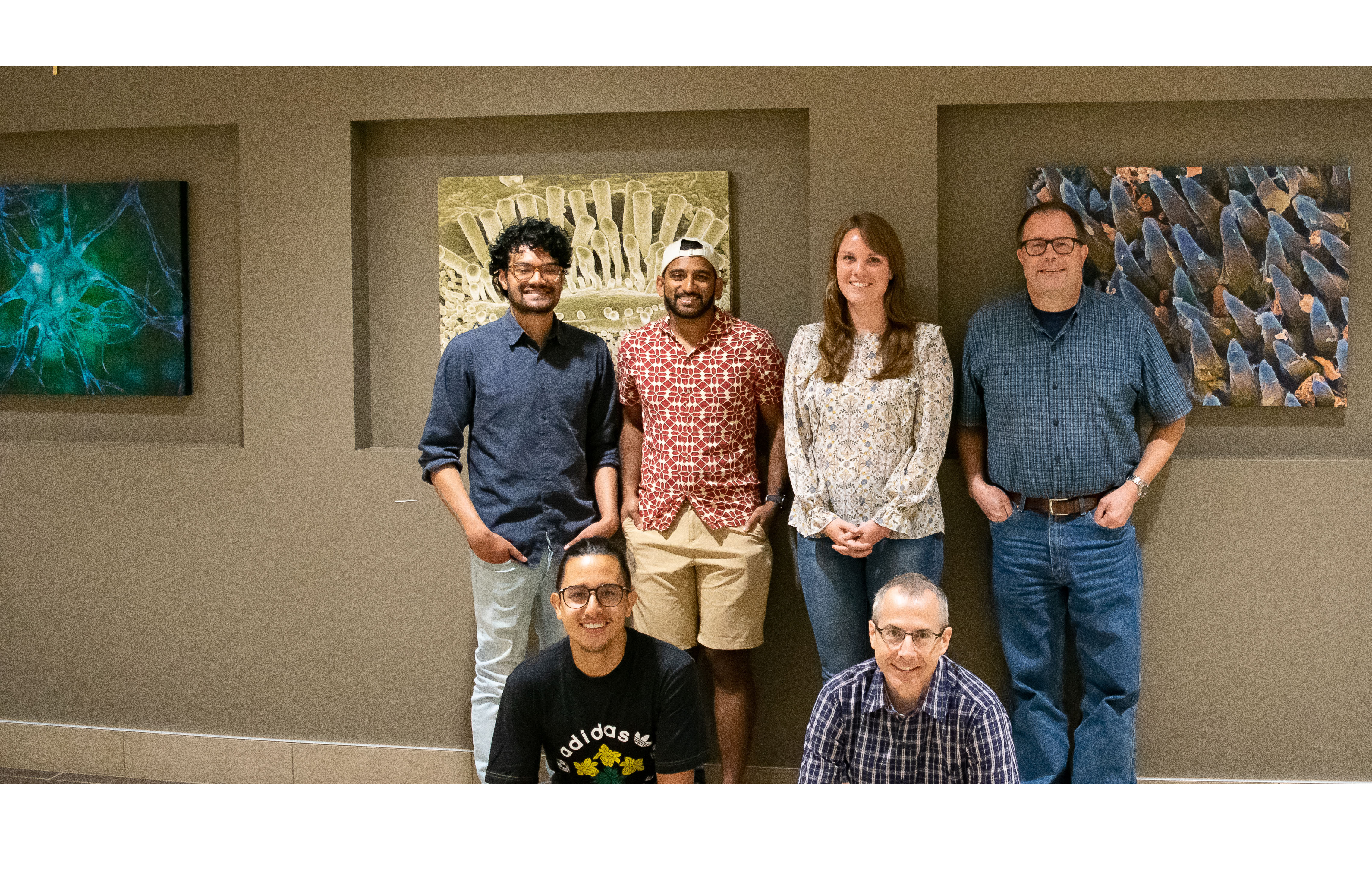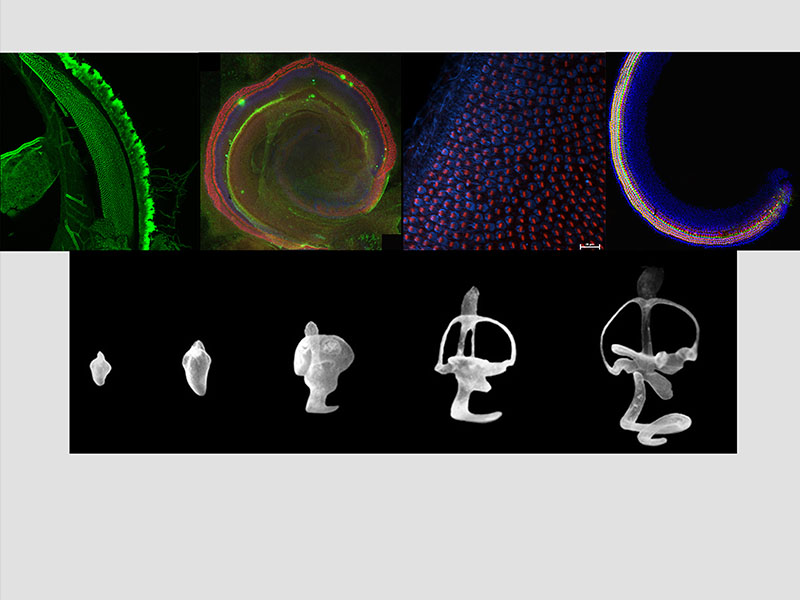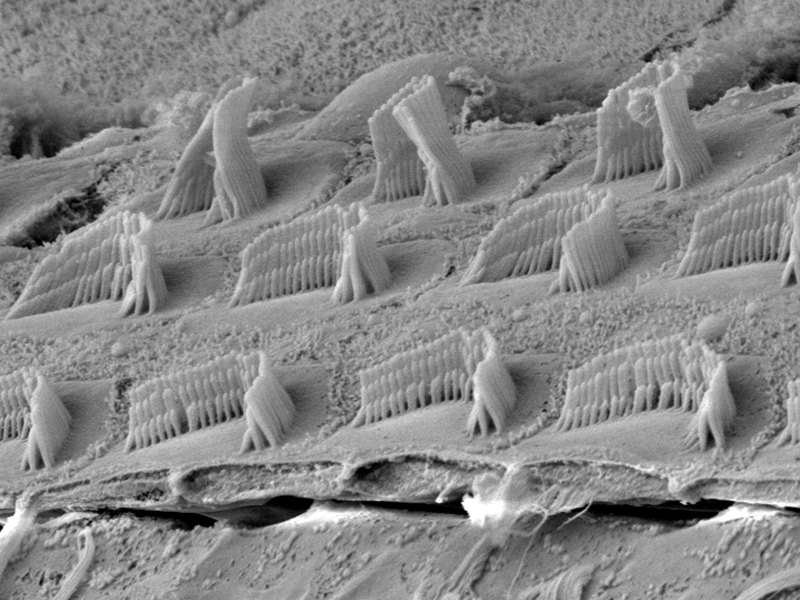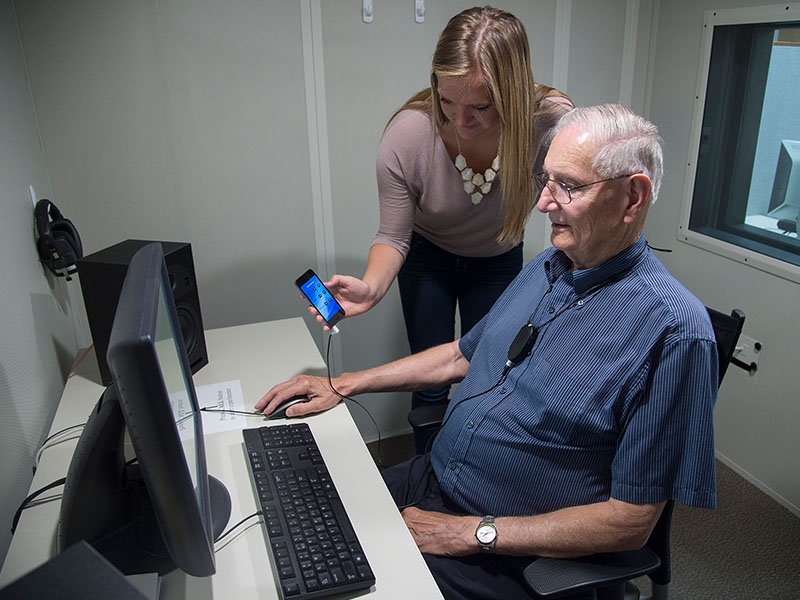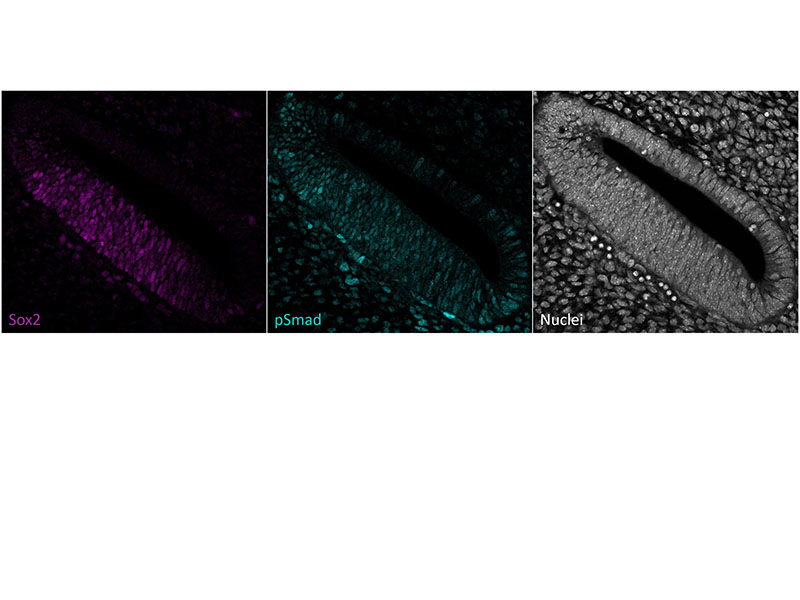Seminars in Hearing Research (02/26/26) - Romina Najarro Flores
Seminars in Hearing Research (02/19/26) - Dr. Jarrod Hicks
Seminars in Hearing Research (01/29/26) - AuD EBP Talks by Hannah Schafer and Annika Schenkel
Seminars in Hearing Research (01/22/26) - Samuel Senneka
Interdisciplinary Training Program in Auditory Neuroscience (TPAN)
There is a national need to advance the understanding of hearing in both healthy patients and those with various causes of hearing loss. The objective of this training program is to train the next generation of faculty who could populate colleges of science, engineering, and health sciences, as well as to send graduates into industry prepared to work toward creative solutions for treating hearing loss.
Specifically, in order to advance auditory neuroscience training, this graduate program leverages faculty expertise in basic hearing science and technology development, from three Purdue University colleges (Science, Engineering, and Health & Human Sciences) and 5 doctoral admissions programs. Two types of investigators are included in the training program: 10 hearing scientists with focused research programs related to auditory system neuroscience, and 7 technology innovators who are trained in other disciplines (electrical and biomedical engineering).
Collectively and collaboratively, the program will expand knowledge about mechanisms at the molecular, cellular and systems levels that underlie auditory information processing. This fundamental knowledge can then be applied to better understand the changes that lead to pathologies of the auditory system due to damage, disease, aging, and congenital disorders, as well as understanding how hearing evolved and influences behavior and natural selection. Technological approaches to these questions include, but are not limited to, fluorescent sensors to detect purinergic signaling in the intact nervous system, biological implants for neuromodulation, high-resolution four-dimension calcium imaging deep in the mammalian brain, optogenetics and robotics (automated patch-clamping) for brain circuit analysis, and multimodal brain imaging methods.
This training program is unique in that it is specifically designed to serve students with undergraduate degrees in the disparate disciplines of life science, physical science or engineering, and merge them into a unified cohort focused on auditory neuroscience. Students will be selected for a 2-year term on the training grant, beginning at the start of their second (or third) year. The training curriculum includes 4 core courses (one each in neuroscience, the auditory periphery, central/perceptual aspects of hearing, and signal processing), several recommended courses (e.g., in neurosurgery or neuroscience), a weekly Hearing Science seminar series, and yearly attendance at extramural hearing-related courses and/or auditory neuroscience conferences. In addition to administrative support for the program, the Purdue Institute for Integrative Neuroscience will provide students with additional resources, such as supervised grant writing, hands-on training in animal behavior and human stem cells, annual neuroscience retreats, and access to in-house competitions for travel grants and pilot funding for collaborative projects. Further, this program builds on Purdue’s extensive history in training graduate students in collaborative research (particularly in hearing science and technology development), and preparing these students for successful research careers in academia, industry and the clinic.

